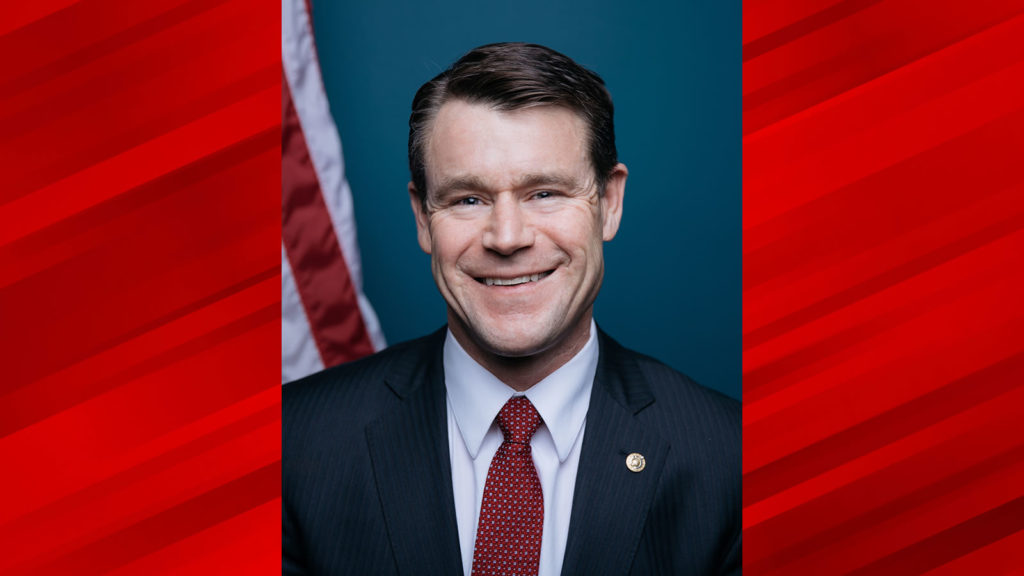U.S. Senator Todd Young (R-Ind.), Senate Foreign Relations Committee Ranking Member on the Subcommittee On Near East, South Asia, Central Asia, and Counterterrorism, penned an op-ed for The Hill regarding the unseen challenges that remain after the United States’ abrupt withdrawal from Afghanistan.
“It is critical that Congress continue to conduct rigorous oversight to understand the many facets of this failure, hold leaders accountable, and ensure that the United States is properly positioned to respond to new threats as they emerge,” Senator Young wrote. “Ultimately, I expect that the American people will hold Joe Biden accountable for his calamitous withdrawal that left 13 American service members killed, left Americans and Afghan allies behind, and was a strategic and diplomatic failure for the United States.”
Read the full op-ed here and below:
The Hill: The Unseen Problems in Afghanistan
By: U.S. Senator Todd Young
To most Americans, foreign policy is not something they think about on a daily basis. But when the needle moves, it’s often because of gripping footage that finds its way to our screens.
In Afghanistan, videos of American allies clinging to — and falling from — our military planes as we left the country in chaos caught the attention of millions of Americans. News footage of those trapped outside the Kabul airport and images of a blown-up Toyota Corolla once full of innocent civilians have kept the story alive.
Compelling as those images are, what concerns me even more are the far reaching consequences of our botched departure that remain unclear.
Top military leaders testified before the Senate Armed Services Committee this week that they advised President Biden against withdrawing all troops from Afghanistan.
Secretary of Defense Lloyd Austin said that the Biden administration never considered that the Afghan government would collapse in a mere 11 days. And Secretary of State Antony Blinken’s recent testimony before the Senate Foreign Relations Committee has left us with more questions than answers about how this disaster occurred and who is responsible.
Congress’ rigorous oversight of the Afghanistan failure must continue and we must go deeper to understand the devastating and far-reaching costs that have yet to surface.
I can think of at least four areas where the costs of our dreadful exodus will continue to mount: diplomacy, intelligence, foreign influence and our military superiority.
If the orderly, conditions-based withdrawal President Trump agreed to and President Biden articulated support for had been implemented, we would have been able to maintain a strategic toehold within the country through our embassy.
That diplomatic presence would have enabled the United States to provide essential consular services for American citizens and Afghan allies. And our enduring presence would have enabled the United States to monitor threat streams and provided us with access to critical human intelligence to respond to threats facing our nation.
The Biden administration has claimed that it will be able to conduct intelligence, surveillance, and reconnaissance (ISR) missions remotely or “over-the-horizon.” But mistakes like the tragic drone strike in Kabul are avoidable only when we rely on multiple kinds of intelligence to find, fix, and finish targets. Simply put, relying exclusively on “over-the-horizon” capabilities will only increase the risk to civilians on the ground in Afghanistan and increase the risks to the United States by missing critical details through gaps in the intelligence available.
Our nation’s intelligence community is immensely capable but they must have access to as many resources as possible if they are going to provide a complete and accurate picture to the appropriate decision makers.
Further, given the distance from which various platforms must now travel to Afghanistan, the amount of time they will have over the target area will be extremely limited.
Beyond the tactical considerations, our withdrawal has also provided us with a strategic setback vis-a-vis the Chinese Communist Party.
As the U.S. Embassy in Kabul closed and shifted to Doha, Qatar, the Embassy for the People’s Republic of China has remained open for business.
While the relationship between the Taliban and the Chinese Communist Party will be complicated, China will undoubtedly do whatever they can in pursuit of Afghanistan’s vast, untapped natural resources.
Beyond the strategic threat with China, we have seen other challenges emerge as U.S. military equipment, originally provided to the Afghan National Security Forces, has now crossed the border into Iran.
It is now inevitable that experts from Russia, China, and Iran will use the equipment to test, research, and reverse engineer. Our equipment now serves as a laboratory for conducting tests to counter America’s defenses.
It is critical that Congress continue to conduct rigorous oversight to understand the many facets of this failure, hold leaders accountable, and ensure that the United States is properly positioned to respond to new threats as they emerge.
Ultimately, I expect that the American people will hold Joe Biden accountable for his calamitous withdrawal that left 13 American service members killed, left Americans and Afghan allies behind, and was a strategic and diplomatic failure for the United States.
President Biden may wish to be done with Afghanistan but it is clear Afghanistan is not done with us.
Todd Young is the senior senator from Indiana and is a member of the Foreign Relations Committee.










